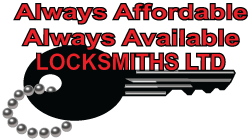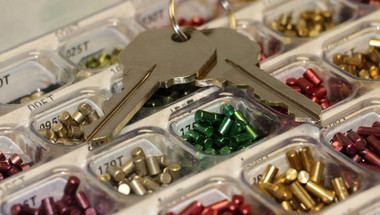Posted by FRANK FOURCHALK on 24th Feb 2016
Rekey all the locks in the house you just bought
| Story supplied from www.canada.com |
|
Photograph by: Minerva Studio , Fotolia.com |
Buying a home is an exciting venture, but there can often be security risks attached to the purchase. I'm referring to those risks that are inherited - either from the builder or the previous homeowner.
Keys are a perfect example. It's exciting to receive the keys to a new home, but you need to ask yourself whether they're the only keys to the house.
Did the previous homeowner loan keys to caregivers, family members, neighbours or cleaning companies that may not have been returned?
This is why you need to rekey all the locks in your new home.
Rekeying should not be confused with replacing a lock. You don't need to replace the locks in your new home to lock out the previous key. A locksmith simply disassembles the lock cylinder - the area that accepts the key - discards the old pins, and replaces them with ones that fit your new key. This is not an expensive procedure, and it usually only takes a few minutes to change several locks.
Today's home insurance companies often frown on folks who don't rekey their new home once they move in. Often when a claim is made, these companies will want to see signs of forcible entry to ensure homeowner neglect was not the underlying cause.
So how do you go about changing the keys to your new abode? There are three ways for the homeowner to tackle this job. If you're a handyman, you may want to remove the locks and take them to your local locksmith. There, your security expert can alter them quickly and easily.
Another option is to check with the previous owner or builder to see if they installed locks that allow the homeowner to rekey them without having to call a locksmith. Unless these locks were installed within the last few years, this may or may not be an option because of today's new technology.
The third option is to call a locksmith who will charge you a service call and labour to remove, rekey and reinstall your locks. For the homeowner who's not so handy, this is the way to go. An advantage to calling in a professional locksmith is that he or she will point out any lock deficiencies you may have. Often they will find what I call "handyman specials" where the locks are malfunctioning or installed wrong because of an inexperienced builder or homeowner's handiwork.
Remote garage door openers can also be an inherited security risk to new homeowners. Changing the frequency code on your remote door openers is as important as changing the keys to your home. Remotes are often loaned to tradesmen, gardeners and other family members. Unfortunately, when you purchase your new home, there's no way of telling how many remotes operate your overhead garage door.
The only sure way of making this area secure is to change the frequency codes. This is a simple procedure for most garage door openers. Often the instructions on how to do the change are listed on the opener itself (located near your garage ceiling). If you can't find the instructions, you should be able to Google the manufacturer's name and download the operating manual.
And don't forget to check and see if your new home has an overhead garage door digital keypad, which is used to open and close the door from the outside. These units are usually on the outside of the door.
These convenient push button units allow the homeowner access to the garage by entering an access code. Their main purpose is to allow access into the garage without having to carry a remote or having to enter the garage through the house.
The frequency codes in these units must be changed to prevent previous code holders from entering their code and accessing your garage. In most cases, changing the code on these push button door controllers is no more difficult than changing a remote control unit. Often the instructions on how to change the entry code are printed on the inside of the keypad lid.
Frank Fourchalk is a licensed B.C. security consultant whose company specializes in home and condo security. Email frank@ yourhomesecurity.ca


